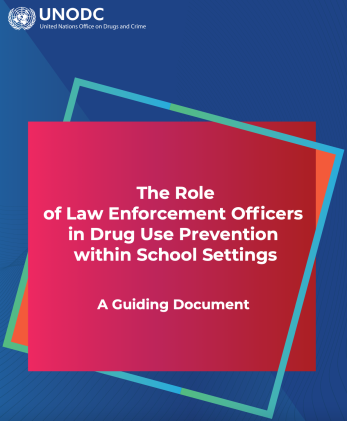
Іздестіру
The effect of drug treatment court on recidivism: a comparison with traditional court intervention
ABSTRACT
Drug treatment courts have transformed the way in which courts process drug-related cases and respond to drug-involved offenders. Established as a diversion program, drug courts help to reduce recidivism among substance-involved...
A systematic review and meta-analysis of the effects of judicial supervision on recidivism and well-being factors of criminal offenders
ABSTRACT
This systematic review and meta-analysis investigated whether problem-solving court interventions that employed judicial supervision were more effective in reducing recidivism and improving well-being outcomes for offenders...
Assessing the Effectiveness of Mental Health Courts in Reducing Recidivism: A Systematic Review with Meta-analysis
ABSTRACT
Mental Health Courts (MHCs) are a type of treatment court created to divert offenders with mental illness away from incarceration and into community-based treatment. While research on the impact of MHCs on recidivism has produced...
Assessing the Effect of Mental Health Courts on Adult and Juvenile Recidivism: A Meta-Analysis
ABSTRACT
Mental health courts (MHCs) are increasingly used across the United States as a means of reducing contact with the criminal justice system for individuals experiencing serious mental health conditions. MHCs rely on diversion from...
Recidivism following mental health court exit: Between and within-group comparisons.
ABSTRACT
Over the past decade, Mental Health Courts (MHCs) have spread rapidly across the U.S. These courts aim to reduce recidivism among adults with mental illnesses through diversion into community-based treatment. Extant research...
Diversion Programs for Individuals Who Use Substances: A Review of the Literature
ABSTRACT
Diversion programs connect individuals to treatment instead of criminal sanctions and are used more frequently to address substance use. This systematic scoping review included 31 published empirical studies to examine evaluations...
Lifetime Benefits and Costs of Diverting Substance-Abusing Offenders From State Prison
ABSTRACT
Prisons hold a disproportionate number of society’s drug abusers. Approximately 50% of state prisoners meet the criteria for a diagnosis of drug abuse or dependence; however, only 10% of prisoners receive drug treatment. Diverting...
A systematic review and meta-analysis on the effects of European drug treatment programmes on reoffending
ABSTRACT
This article presents the results of a systematic review and meta-analysis on the effects of treatment programmes for drug abusing offenders in Europe, using stringent eligibility criteria to control for threats to internal...
Revising the paradigm for jail diversion for people with mental and substance use disorders: Intercept 0
ABSTRACT
A conceptual model for community-based strategic planning to address the criminalization of adults with mental and substance use disorders, the Sequential Intercept Model has provided jurisdictions with a framework that overcomes...
Family Treatment Drug Court Cost Analysis: An In-depth Look at the Cost and Savings of a Southeastern Family Treatment Drug Court
ABSTRACT
This study examines the cost and benefits of a family treatment drug court (FTDC) in an urban county in a southeastern state. This study utilized a cost–benefit analysis that enters the costs of family treatment drug court and...
The impacts of family treatment drug court on child welfare core outcomes: A meta-analysis
ABSTRACT
Background
Substance abuse has been prevalent among caregivers involved in child welfare and is a major barrier to their achieving favorable outcomes. Family Treatment Drug Courts (FTDCs) have been viewed as one of the most...
The Impact of Traumatic Stress, Social Support, and Substance Problems on Graduation Among Female Offenders in a Prescription Drug Court Program
ABSTRACT
Trauma exposure and comorbid substance use are highly prevalent among female drug court participants. Despite the pervasiveness of the issue, few studies have investigated the impact of posttraumatic stress symptoms (PTSS) and...
Scoping review of interventions to link individuals to substance use services at discharge from jail
ABSTRACT
Introduction
Individuals with substance use disorders (SUD) must be linked to community-based SUD treatment and other services upon their release from jail, given their high service needs and risks for relapse, recidivism, and...
A promising jail reentry program revisited: results from a quasi-experimental design
ABSTRACT
Prisoner reentry remains a significant challenge for the criminal justice system with millions of offenders returning to society each year from the nation’s prisons and jails. Employment, housing, and access to substance abuse and...
Reentry interventions that address substance use: A systematic review.
Justice-involved individuals with substance use problems have heightened risk of relapse and recidivism after release from incarceration, making reentry a critical time to provide evidence-based treatments (EBTs) for substance use; however...
The impact of specialized referral services on recidivism and length of stay among halfway house residents
ABSTRACT
Individualized case management services that identify and provide support for treatment, housing, and employment may improve opportunities for success for those housed in community residential facilities (CRFs) upon release...
Moving Beyond Referrals: Addressing Multilevel Barriers to Substance Use Treatment Engagement Through Police-Led Recovery Management Check-Ups
ABSTRACT
The opioid epidemic in the United States (US) has prompted innovative responses from law enforcement agencies including specialized units to refer overdose survivors to substance use treatment following an overdose. However...
Transition Planning from Jail; Treatment Engagement, Continuity of Care, and Rearrest
ABSTRACT
Mental illness is experienced at a higher rate among incarcerated individuals than the general population. This study is one of the first assessing the association of a jail-based mental health (MH) transition planning program...
Treatment Combinations: The Joint Effects of Multiple Evidence-Based Interventions on Recidivism Reduction
ABSTRACT
Evidence-based interventions have been implemented within penal institutions to reduce the propensity of postrelease reoffending across states. Traditional program evaluations explore these interventions and demonstrate treatment...
Specialized Mental Health Supervision: Revocations and Risk Composition
ABSTRACT
Although many studies have investigated the disproportionate representation and negative experiences of justice-involved persons with mental illness (MI), we know less about probation/parole revocations among this population...
Share the Knowledge: ISSUP members can post in the Knowledge Share – Sign in or become a member

